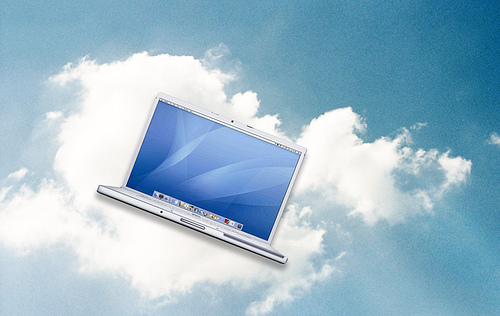Is The Cloud Just Full Of Hot Air?


Seems like everywhere you turn lately, people are talking about the cloud. Whether it’s stories about celebrity nude photos being hacked off of iCloud, or Chromebooks that store files on the cloud instead of an in-system hard drive, it’s a concept that has people buzzing, perhaps to a point where some folks, out of sheer contrariness, are apt to dismiss the whole concept.
But is the cloud in fact being over-hyped and over-sold? We’ll take a brief look and see just what kind of impact, if any, the cloud is having on businesses and consumers, and see if it’s as good as advertised.
If you’re on the lookout for undeserved hype about the cloud in the business world, then you best look elsewhere, because it’s delivering what it promised. The cloud is creating new opportunities for businesses of all sizes, making big companies more efficient and helping smaller businesses remain competitive against the big guys.
The cloud helps communication between suppliers and their clients, increasing supply chain efficiency. It has reduced costs yet boosted speed and accessibility in areas like IT and Human Resources. According to the article “Tips For Avoiding A Cloud Induced Mess”, many businesses have reported using the cloud to one extent or another in 2014.
For small businesses, the cloud has demonstrated itself to be a cost-effective solution that’s scalable and easily adaptable to the individual needs of the customer. Offering advantages such as Software-as-a-Service and Platforms-as-a-Service, the cloud helps businesses address their specific issues such as storage, analytics, or security.
Thanks to the cloud’s philosophy of renting as opposed to owning, small businesses can have access to these cloud services on a month by month basis, rather than launching into a long-term commitment to purchase expensive resources and installing them in-house. This enables smaller companies to save money while still being able to use the same powerful tools that larger companies enjoy. For instance, cloud computing allows the easy synchronization of files and data, thereby allowing employees to access information no matter if they’re on the road, at home, or in the actual physical building.
So what about the average person? Is the cloud being over-sold to consumers? Actually, no, it’s not. People who use iCloud, Google Docs, Dropbox, or Amazon’s Cloud Drive are already reaping the benefits of cloud computing. For instance, Amazon’s Cloud Drive offers 5GB of storage for free, then provides additional storage of videos, music, images, and documents with plans that start at $20 a year. Using these kinds of cloud storage means that consumers aren’t tied to their desks, and, for that matter, their mobile computing can be accomplished by devices that don’t have major internal storage, which in turn makes for cheaper computers like the aforementioned Chromebook.
And mobility is precisely why the cloud is such a benefit to the consumer. Whether we’re talking about email, social networking, or specific applications such as online banking and finances, the cloud provides secure, comprehensive service that facilitates the mobile computing experience. And with increasing numbers of people going mobile, the cloud’s role becomes more important than ever.
Let’s not forget that SaaS is also benefiting the consumer as well. Rather than plunking down hundreds of dollars on buying a software package, customers can get the same utilities and applications for a much more manageable monthly fee.
The cloud is not only here to stay, it’s proving itself a useful tool for both the public and private sectors. Don’t let the hype turn you off to the cloud’s benefits. But if you want even more convincing, check out “What Is The Real Impact Of The Cloud?”, though you’ll find it simply reinforces the above points. More than ever, the future of our computing lies in the clouds.
